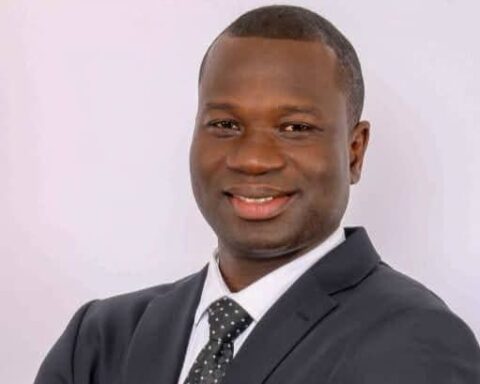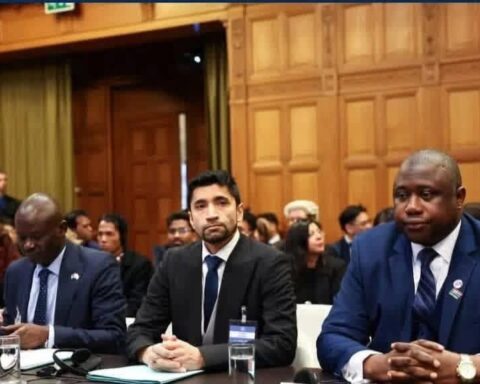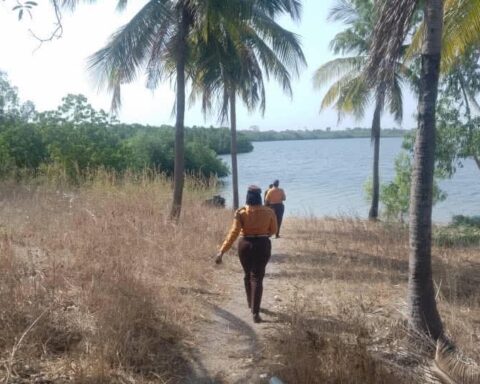By Alieu Jallow
A new political movement in The Gambia, PROGRESS, has pledged sweeping reforms to “salvage the nation and put a smile on the faces of citizens again,” under the leadership of international lawyer Amadou Jaiteh.
The People’s Reformist Organization for Growth, Renewal, Equity, Security and Social Justice (PROGRESS) says its rise comes at a time when corruption, weak institutions, and reliance on external aid continue to slow the country’s progress. Many Gambians, it argues, feel left behind more than 60 years after independence.
“Project PROGRESS is more than a political movement. It is a vision for a new Gambia that is united, just, and prosperous. We want a nation anchored on transparency, accountability, inclusivity, and innovation, where every citizen has an opportunity to thrive,” the movement said.
Jaiteh, who served as Legal Adviser at The Gambia’s Permanent Mission to the UN in New York from 2016 to 2025, is regarded as one of the country’s most influential diplomatic voices, known for his work on climate justice, peacebuilding, human rights, international cooperation, and international law.
The movement’s agenda focuses on transparent governance, stronger institutions, fair resource use, and sustainable growth driven by innovation, agriculture and tourism. Youth, women and marginalized communities are central to its plans, alongside global partnerships that protect national interests.
Food security and economy
A key pillar of the manifesto is food security. PROGRESS wants to shift the country toward self-reliance through smart agriculture, backed by farmer subsidies, modern equipment, and investment in new technologies. Jaiteh said The Gambia’s river and underground water resources remain underused and could support year-round irrigation.
In its first 100 days, PROGRESS says it plans to intervene in food importation and enforce price controls to ease pressure on families. The team acknowledges the approach may generate debate but insists it is necessary.
Anti-corruption drive
The movement also says it plans to declare corruption a national emergency, establishing an Independent Anti-Corruption Commission with full powers to investigate, arrest and prosecute, reporting directly to the National Assembly.
“Audit reports and findings from commissions of inquiry will be enforced without delay, and penalties for corruption will be increased,” the team said.
To cut government costs, PROGRESS proposes reducing ministries from 20 to 8, limiting foreign travel and reforming both the civil and foreign services. It argues the “Meet the People’s Tour” should be funded within the Office of the President, not treated as a separate budget burden. Savings would be redirected into education, healthcare, agriculture and infrastructure.
Healthcare reforms
On healthcare, PROGRESS plans to focus on prevention and community-level delivery. Its One Village, One Doctor initiative aims to ensure every community has access to trained medical personnel.
Other priorities include:
removing import duties on female sanitary products
declaring maternal mortality a national emergency
transferring hospital management to an autonomous authority
The movement also intends to revive Commonwealth technical assistance programmes to strengthen medical training.
Education overhaul
In education, PROGRESS says it wants a full curriculum redesign to reflect national identity and prepare young people for modern development needs. Civic education, innovation, digital skills and entrepreneurship will be emphasized, while teacher pay and training will be improved.
Plans include:
integrating Gambian and African history
expanding vocational and creative programmes
aligning learning with agriculture, technology, healthcare and creative industries
Governance and security
The movement promises to reform what it calls a divisive local governance system, empowering Village Development Committees and building non-partisan structures at district and regional levels.
Reforms include eliminating chairmanship, mayorship and governorship positions, centralizing revenue collection with transparent redistribution, and holding parliamentary and presidential elections on the same day. Jaiteh said this would reduce political tension and cut electoral cycles to once every five years: “More work, less politics.”
On security, PROGRESS says it is committed to fully implementing reform plans to create a professional and accountable force. Recruitment would be merit-based, training improved and pay increased. The justice system would shift toward rehabilitation, with stronger community policing to rebuild trust.
Jaiteh said the movement’s seven priority areas include both immediate actions and long-term reforms. Short-term steps will address the rising cost of living, while structural changes will guide national transformation.
He added that PROGRESS aims to restore confidence in public institutions and build a future where “every Gambian feels protected, included, and hopeful.”
By Alieu Jallow A new political movement in The Gambia, PROGRESS, has pledged sweeping reforms to “salvage the nation and put a smile on the faces of citizens again,” under the leadership of international lawyer Amadou Jaiteh. The People’s Reformist Organization for Growth, Renewal, Equity, Security and Social Justice (PROGRESS) says its rise comes at The Fatu Network





